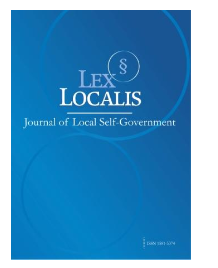NEGOTIATING OTHERNESS: IDENTITY, POWER, AND SURVIVAL IN J.M. COETZEE’S POST-APARTHEID NARRATIVES
DOI:
https://doi.org/10.52152/801861Keywords:
J.M. Coetzee, Post-apartheid literature, Otherness, Identity, Survival, Power dynamics, Gender and race, Ethical responsibilityAbstract
This article investigates the negotiation of otherness, identity, and survival in J.M. Coetzee’s post-apartheid narratives, with particular focus on Disgrace (1999) and selective references to later works such as Elizabeth Costello (2003) and The Childhood of Jesus (2013). Coetzee’s fiction foregrounds how post-apartheid South Africa remains a space of contested identities, shifting power relations, and fragile freedoms. Through characters such as David Lurie, Melanie Isaacs, Lucy, and Petrus, Disgrace dramatizes the interplay of gendered vulnerability, racial power, and land politics. Lucy’s refusal of legal recourse after her assault and her decision to remain on her farm under Petrus’s protection exemplify “strategic unfreedom,” a form of survival that complicates liberal ideals of autonomy. Lurie’s moral transformation, marked by humility in caring for abandoned animals, highlights Coetzee’s ethical turn toward recognizing otherness in all its forms—human and nonhuman.
Drawing on postcolonial theory (Bhabha, Spivak), biopolitics and necropolitics (Foucault, Mbembe), and the ethics of alterity (Levinas), the study demonstrates that survival in Coetzee’s post-apartheid fiction is less about heroic resistance than about fragile negotiations of vulnerability, silence, and dependence. The analysis concludes that Coetzee redefines freedom not as absolute mastery but as ethical survival within conditions of unfreedom, thereby situating his work at the intersection of political critique and moral responsibility.
Downloads
Published
Issue
Section
License
Copyright (c) 2025 Lex localis - Journal of Local Self-Government

This work is licensed under a Creative Commons Attribution-NonCommercial-NoDerivatives 4.0 International License.








